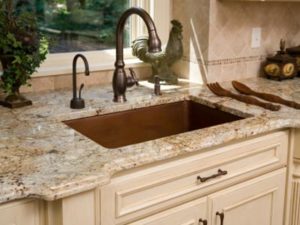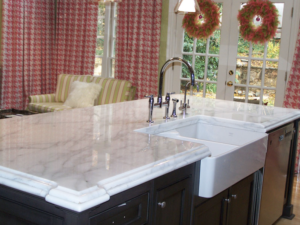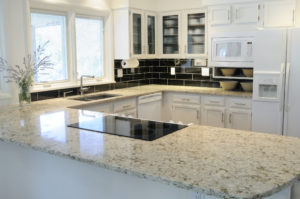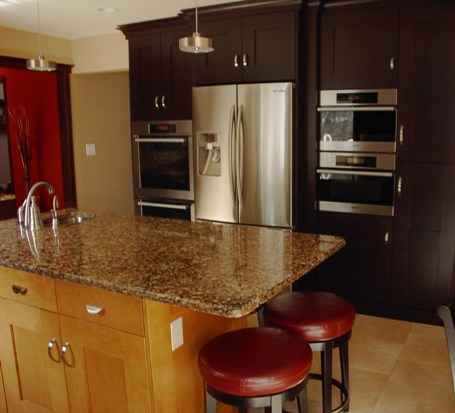Any granite owner understands that some products should not be used to clean the surface. Although it is quite strong and resilient under most conditions, some common household chemicals are simply too harsh. Detergents and ammonia can cause the appearance to dull, but acidic cleaners actually eat away at the surface. The only way to keep your granite looking great and free from damage is to learn the proper technique for cleaning with safe products.
Routine Clean
It is recommended to wipe down the surface as often as needed with warm water and a mild dish soap. Use fresh water to rinse until all soap is removed to prevent the residue from leaving a dull appearance. Never use any citrus-based cleaners as they are too harsh for use on granite. Isopropyl alcohol, baking soda, and water can also be used safely to disinfect and sanitize the surface if needed. A professional cleanser should be used on occasion to restore shine to the countertop.
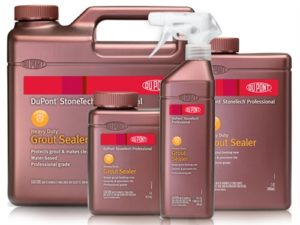
Items You Will Need
- Soft, non-abrasive sponge
- Microfiber cloth
- Bowl of warm water
- Bowl of clean rinsing water
- DuPont™ StoneTech® Professional KlenzAll™ Cleaner or Revitalizer Granite Cleaner
Deep Clean – Best Cleaner For Granite Countertops
Dirt, oil, grease, and other stubborn substances require the help of professional products. We recommend mixing warm water with DuPont™ StoneTech® Professional KlenzAll™ Cleaner or Revitalizer Granite Cleaner. The concentrated solution should be prepared with 2-4 parts water in a large bowl, unless it is a ready-to-use product. Apply the mixture to the granite surface and rub gently with the cloth or sponge until the debris has lifted. Completely rinse the product from the surface with clean water and dry with the microfiber cloth.
Additional Tips (how often to seal granite)
- Every 2 years, it is recommended to have the granite surface resealed with a high-quality professional product. DuPont™ StoneTech® Professional Bulletproof® Sealer and Natural Stone Countertop Sealer are highly recommended products that are easy to use.
- Avoid acidic cleaners as much as possible because they weaken sealant and leave the surface vulnerable to damage. Lemon, lime, vinegar, bleach, and ammonia are among common household products that should never be used on granite.
- Test the seal of countertops by placing a drop of water on the surface. A strong seal will cause the water to bead up, but resealing is necessary if it soaks into the granite within a few minutes.
- Check out the Dupont Stone Care Guide for more tips!
Follow these tips for worry free maintenance and cleaning of your granite countertops. For more information give us a call or simply stop by our showroom.



